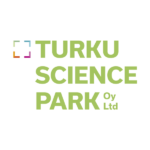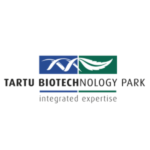Accelerace Life: Promoting new Health Tech Start-Ups in ScanBalt BioRegion
The ScanBalt BioRegion area tops the world in clinical medicine research, but we do not see enough startups. Accelerace Life is a potential instrument to address the problem. A special financing instrument Nordic-Baltic Accelerace Investment Fund (NBAIF) is to be created.
By Tero Piispanen, Finnish HealthBIO, Vice chairman of ScanBalt & Jaanus Pikani, Entrepreneurship Development Centre for Biotechnology and Medicine, Vice chairman of ScanBalt.
The Northern European Elite
Traditionally, Northern Europe has belonged to the international elite in creating successful life sciences start-up companies. Recent declines in the number or new viable businesses created means that the position has become threatened. This contrasts with the fact that measured by a number of significant indexes – research, capital, strong & established life science companies – we still perform well internationally. Yet, in Europe average money raised from venture capital sources has fallen from an average of US$1,8 million between 2004 and 2007 to an average of US$1,3 million in the four years since the general financial crisis in 2008. Figure 1 shows that the decrease in total number of venture financings is even more dramatic.

Source: EVCA
Figure 1: European Venture Financings
One reason for these declines might be the growing understanding that the traditional venture financing model, which has been at the core of making high-growth companies, has not been very successful in life sciences. This is because of long timelines, high level of perceived risk and the existence of an underperforming IPO market. A negative trend is also seen in the amount of investments per company (Figure 2), which apparently leads to more frequent financing rounds, and shifts the attention of company management even more to fund raising and away from actual business development.

Source: EVCA
Figure 2: Average investments in Life Science companies in Europe
Compared to the US, Europe has a smaller pool of active venture capitalists, and many of them limit the geographic reach of their investments. It seems that since 2000 venture financings in the US has doubled annually, whereas in Europe the level has remained about the same. This means that the US has clearly widened the relative advantage in venture financing from 2-fold to 3-fold in the past decade.

Source: Ernst & Young
Figure 3: Annual venture financing in the Life Sciences sector in the USA and Europe, US$ million.
It is time for Europe and especially Northern Europe to start catching up. ScanBalt BioRegion tops the world in clinical medicine research, but yet we do not see enough start-ups in the area. One way to solve the problem would be to introduce a common seed and early stage fund in the area, where the funds would be mainly collected from public entities.
Accelerace Life (AL)
A potential instrument to address the problem is regional cross-border cooperation. In order to do this, Tallinn Science Park Tehnopol, Tartu Biotechnology Park,(Estonia), Accelerace Management A/S (Denmark), Dantheman AB (Sweden) and Enixus Baltics (Latvia) have collaborated to build AcceleraceLife (AL) – an elite cross-border acceleration platform for health-tech start-up companies. The model is based on Accelerace Denmark’s long-term experience and methodology. This cross-border acceleration initiative with shared methodology, networks, expertise and resources enables consideration of the region as a de-facto larger ecosystem with unique benefits for all stakeholders participating in the acceleration process. The most remarkable benefits definitely include a wider spectrum for soft funding, sharing of experience and the possibility to test prototypes in at least four different markets at the same time more easily and cost-efficiently. The main distinctive characters of this cross-border acceleration process include:
· Applications accepted from the entire world with primary focus in Scandinavia and Baltics.
· Start-ups continue to be located in their home country or one of the participating countries.
· The joint process is coordinated centrally by the executive team of AL (incl. choosing mentors, raising and managing investment fund).
· In addition to individual mentoring and business labs for the accelerator start-ups, the acceleration process features joint camps (trainings, networking), which rotate between the locations of all partners.
· The cross-border approach leads to economies of scale and enables sharing of costs between partners, improving the cost-efficiency of the proposed acceleration process.
Following an initial start-up period, when successful, AcceleraceLife will be open for additional partners from ScanBalt BioRegion. The long-term ambition of the AL is to create a sustainable model for training, growing and funding health-tech start-ups, and to do this without direct financial support from the public sector. In order to meet this ambition, AL accelerator will be eventually sustainably financed through a customized solution based on loans and investments from the Nordic-Baltic Accelerace Investment Fund (NBAIF) which is currently set up.
To guarantee the financial viability of AL after the end of the procurement contract, companies entering the acceleration process will sign a loan contract with AcceleraceLife for an amount corresponding to the expected volume of coaching activities. For example, if a company expects to get 200 hours of coaching, the loan agreement will be worth €20 000. The terms of the loan will be: (1) interest 10% p.a., (2) period 5 years, (3) first year no principal or interest payments, (4) no collaterals. Once this system is fully implemented and companies begin paying back their loans, the Accelerace business model will be sustainable even after public support mechanisms have ended. For the companies in the process it has an additional motivation to achieve effective performance. Pro-forma calculations and experience from Danish Accelerace activities suggest that the model is financially balanced when as few as 1/3 of the companies in the system pay back their loans.
Investors are involved as early as possible, mostly already in the selection process of start-ups to the AL but definitely by the beginning of the second 6-month period of acceleration. Investors are involved throughout the programme (in both stages):
· In the preparation phase that is on-going. The international investor community is, has been and will continue to be informed about the AL process and planned activities. As of today, 22 angel and institutional investors have already confirmed their interest in participating in financing the companies that will be accepted to the AL program. The process of involvement of additional investors is continuous until final formation of the fund.
· The fund formation will continue by active communication with investors to prepare and agree detailed initial seed investment strategy, fund management structure and –agreement.
· The seed fund is expected to be operational in 2014. It is foreseen that some investors are not willing to pool their finances into a common fund but rather to invest directly into the AL companies according to the terms of the tender document. Therefore, it can be expected that those investors will act faster. In practice this will mean that if formation of the pooled fund is delayed, the independent investors can start immediately to learn about AcceleraceLife pipeline companies and negotiate investment terms in an ad hoc manner.
Otherwise, the target companies will be presented to the pooled seed fund investment board and to the independent investors in parallel and investment decisions are planned to be made in concert between both investor parties.
· In day-to-day process investors will participate in Demo days.
· To improve further activities of the accelerator, each investor is expected to give feedback to the acceleration process (written feedback after each stage is mandatory and operative feedback on an on-going basis as thought fit).
Nordic-Baltic Accelerace Investment Fund (NBAIF)
For the more advanced stage, a special financing instrument – Nordic-Baltic Accelerace Investment Fund (NBAIF) is to be created. NBAIF will be an early stage fund, which invests in companies that have been through the AL Programme. The sources of capital for NBAIF are planned to be multiple: from EU and national financial instruments that will be suitable for fund-of-fund investments in early stage funds to private capital. The expected size of NBAIF to be achieved through initial 2-3 years is €15M. Euros with hopefully a 3-4 fold increase later stages.
AcceleraceLife itself will manage the fund. In practice, this means that AcceleraceLife is responsible for finding, developing and investing in the companies and assuring that follow up after investment has been made. The relationship between AcceleraceLife and NBAIF and, thus, the investors into NBAIF is regulated through a management agreement.
A company seeking financing through NBAIF has to have been through at least the 6 month training program of AL. Final selection of the companies to the AL program as well the decision on the investment by NBAIF will be made by an investor board. The board consists of representatives of NBAIF investors and the major private venture investors in the region also including some of the most active business angels. In all the board consists of 7-9 members.
NBAIF pays app. 2.3% in management fee to AcceleraceLife in the investment period that is set to 5 years in all. This means the period AcceleraceLife is expected to find and invest in new companies. The management fee is calculated based on the total fund size.
After the investment period, the management fee is reduced to 0.5% for the next 3 years and then it is 0% after that period. The investors expect a 10% return annually. Interest above 10% is split equally between investors and AcceleraceLife.
NBAIF is entitled to use all type of financial instruments from equity to convertible debt and loans, while the main instrument is foreseen to be loans with an upside. The reason for this primarily is that NBAIF is to be a stepping-stone for additional funding from venture capital. Using loans ensures that NBAIF has same focus as later investors, namely raising as much capital a possible for the companies. Furthermore given the limited size of the fund, NBAIF has limited capital to do follow up investments, which makes loans more of an optimal instrument.
The loans will be structured in following way:
a. 10% interest annually
b. During the 2 first years, the company only pays interest in order put lesser stress on cash flow
c. Loan is to be repaid fully within 5-7 years
d. Loans have an upside either structured as an exit bonus or as a royalty depending on the performance of the company. This depends on whether an exit is likely or not.
The average loan size is planned to be in the range of €400 000. No investment can take more than 10% of the total fund size and loans have to be syndicated with other private investors. The level of syndication will depend on the final investor structure (private/public ration) of NBAIF. This is done to test the viability of the investments constantly.
The investment focus is early stage companies that are expected to hit the market no longer than 12-18 months after the initial tranche is paid. If the company cannot hit the market in that time frame, NBAIF has to syndicate with investors that have indicated that they are willing to invest further based on specific milestones. NBAIF will require a plan B in order to invest this means that there has to be an alternative to raise additional financing.
Investments are planned based on specific milestones and disbursed in tranches. Accelerace Life will constantly seek to have a profile on the tranches so the first tranches are smaller and then increase based on performance and achievements of milestones.
Given the fact that NBAIF is concentrating on loans rather than on equity investments, the fund’s initial strategy is not to lose money rather than achieve a significant upside. This means that in the beginning, NBAIF is more a venture bank than a traditional venture investor. NBAIF tries to keep losses as low as 25% compared to traditional venture investors who expect a 35-45% loss – meaning that 35-45% is invested into companies that end up closing down.
NBAIF seeks to spread the risk to different types of companies. The risk is spread using the following metrics:
· 60% of the companies are expected to be companies that are looking for additional funding, mainly venture funding, while 40% are expected to be cash flow positive with the money provided in the first round of investment from NBAIF.
· Only 20% of the total fund can be invested into companies with highly similar technologies and markets.
· At most 10% of the total fund can be invested in one company and on average financing has to be around €400 000.
As part of the management agreement between NBAIF and AcceleraceLife, AcceleraceLife is obligated to secure that the right skills are available at all times and key persons (preferably CEO of the company) have a “key man clause”. Investments are made through cash draws from investors and management fees are paid annually based on yearly budgets.












